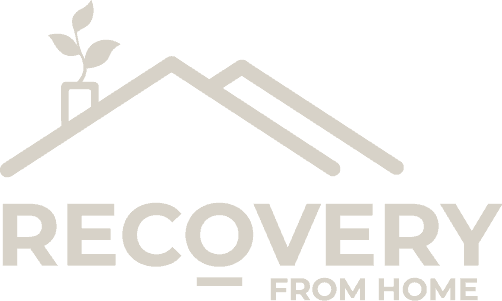Substance abuse family dynamics has emerged as a significant social issue in South Africa, permeating various aspects of life and profoundly affecting family dynamics. With the prevalence of drug and alcohol addiction, many families face challenges that disrupt their cohesion and stability. This article explores the ripple effects of substance abuse on South African families, delving into the nuances of how addiction alters relationships, the role of family therapy, and the journey toward rebuilding trust and harmony.
The Ripple Effect: Substance Abuse in South African Families
Substance abuse in South Africa often creates a ripple effect that touches every member of a family. The immediate impact of addiction is usually felt in the form of strained relationships, as trust and communication become casualties in the battle against dependency. Parents struggling with addiction may neglect their responsibilities, leading to a breakdown in the family structure and leaving children vulnerable. In many cases, the stress and emotional turmoil contribute to an environment where domestic violence and enabling behaviors become prevalent. Family members may inadvertently support the addiction through denial or codependency, a common scenario in cities like Durban. The pervasive influence of substance abuse necessitates comprehensive approaches to address and mitigate its effects on family units.
The Family Impact of Addiction in South Africa
The impact of addiction on South African families is multifaceted, affecting emotional, financial, and social aspects of life. Emotional bonds are often the first to suffer, as addiction fosters an environment of mistrust and resentment. Financial strain is another critical issue, as resources are frequently diverted to support the addiction, leading to instability and hardship. Socially, families may become isolated, either due to the stigma associated with addiction or as a result of the addict’s behavior. This isolation can exacerbate the problem, making it difficult for families to seek help or connect with supportive networks. In such cases, understanding the dynamics of codependency and enabling behaviors is crucial for breaking the cycle of addiction and fostering healing.
Effects of Drugs on Family Relationships in South Africa
The effects of drug abuse on family relationships in South Africa can be devastating, leading to a breakdown in communication and connection. Trust is often eroded as family members are caught in a cycle of lies and deceit, common traits of addictive behavior. As the addict becomes more consumed by their substance of choice, they may distance themselves emotionally and physically, leaving family members feeling abandoned and helpless. This disconnection can lead to a loss of familial roles, where children might take on adult responsibilities prematurely, disrupting normal developmental processes. In some cases, the tension and stress can escalate into domestic violence, further complicating the family dynamic and necessitating intervention and support.
Family Therapy for Addiction in Cape Town
Family therapy has emerged as a vital tool in addressing addiction in Cape Town, offering a structured environment where families can work through their issues collectively. This therapeutic approach aims to rebuild trust, improve communication, and redefine roles within the family unit. By involving all family members in the healing process, therapy helps them understand the nature of addiction, recognize enabling behaviors, and develop strategies for supporting recovery without compromising their own well-being. Through guided sessions, families learn to navigate the complexities of addiction, fostering a supportive environment that encourages the addict’s journey toward sobriety and the restoration of familial harmony.
Support Groups for Families of Addicts in South Africa
Support groups play a crucial role in helping families of addicts in South Africa cope with the challenges they face. These groups provide a safe space for family members to share their experiences, gain insights, and receive emotional support from others who understand their struggles. Organizations across the country offer various programs tailored to the needs of families, focusing on education, coping strategies, and the promotion of healthy boundaries. By participating in support groups, families can break the isolation that often accompanies addiction, empowering them to take proactive steps toward healing and recovery. Such communal support can be a lifeline, providing strength and hope in the face of adversity.
How Addiction Affects Children in South Africa
Children in South Africa are particularly vulnerable to the effects of addiction within their families, as they often bear the brunt of the emotional and psychological fallout. Growing up in an environment overshadowed by substance abuse can lead to a range of developmental issues, including anxiety, depression, and behavioral problems. Children may struggle with feelings of guilt, confusion, and abandonment, as they are unable to comprehend the complexities of addiction. This can result in academic difficulties and social withdrawal, further isolating them from peers and support systems. Addressing the needs of children in these situations is crucial, requiring targeted interventions that provide stability, reassurance, and a sense of normalcy amidst the chaos.
Rebuilding Family After Addiction in Johannesburg
Rebuilding a family after addiction is a complex and challenging process, particularly in a bustling city like Johannesburg. It requires time, patience, and a commitment to healing from all involved. The journey often begins with addressing the underlying issues that contributed to the addiction and creating an open dialogue where family members can express their feelings and concerns. Trust, once lost, must be gradually rebuilt through consistent and honest communication. Family therapy and support groups can facilitate this process, offering guidance and strategies for re-establishing healthy relationships. Ultimately, the goal is to create a resilient family unit that can withstand future challenges and support each member’s growth and well-being.
Domestic Violence and Substance Abuse in South Africa
Domestic violence and substance abuse are often interlinked in South Africa, creating a cycle of abuse that can be difficult to break. Substance abuse can exacerbate tensions within the household, leading to aggressive and violent behaviors that put family members at risk. The presence of drugs or alcohol can lower inhibitions and impair judgment, increasing the likelihood of physical confrontations. Addressing this issue requires a comprehensive approach that includes legal intervention, counseling, and support for victims. By tackling both substance abuse and domestic violence concurrently, families can begin to heal and establish a safer, more supportive environment for all members.
Enabling Addiction in Families in Durban
Enabling behaviors are common in families dealing with addiction in Durban, as loved ones struggle to balance support with accountability. Enabling can manifest in various ways, such as providing financial assistance, making excuses for the addict’s behavior, or shielding them from the consequences of their actions. While often well-intentioned, these actions can inadvertently perpetuate the addiction, delaying recovery and prolonging the family’s suffering. Recognizing and addressing enabling behaviors is a critical step in the recovery process, requiring education and support to help family members make informed decisions that encourage sobriety while maintaining healthy boundaries.
Intervention for an Addicted Family Member in South Africa
Intervention is a powerful tool for addressing addiction within families in South Africa, offering a structured opportunity to confront the issue and encourage the addict to seek help. Successful interventions require careful planning, often involving the guidance of a professional to ensure that the process is conducted in a supportive and non-confrontational manner. Family members must come together to express their concerns and the impact of the addiction on their lives, emphasizing their love and support for the addict’s recovery journey. When conducted effectively, interventions can serve as a turning point, motivating the addict to pursue treatment and begin the path to sobriety.
Codependency and Addiction in South Africa
Codependency is a common challenge in families dealing with addiction in South Africa, characterized by an unhealthy reliance on the addict, often at the expense of one’s own needs and well-being. This dynamic can trap family members in a cycle of enabling and emotional turmoil, as they prioritize the addict’s needs over their own. Breaking free from codependency requires self-awareness and a commitment to personal growth, often facilitated through therapy and support groups. By addressing codependent behaviors, family members can regain their autonomy, establish healthier relationships, and create a more balanced and supportive family environment.
The journey of overcoming substance abuse and its impacts on family dynamics in South Africa is fraught with challenges but is also filled with opportunities for growth and healing. Through a combination of therapy, support groups, and interventions, families can navigate the complexities of addiction, rebuild trust, and foster a resilient and nurturing environment for all members. By addressing the multifaceted effects of addiction and working collaboratively towards recovery, South African families can transform their dynamics, creating a foundation for a healthier and more harmonious future.








Leave A Comment